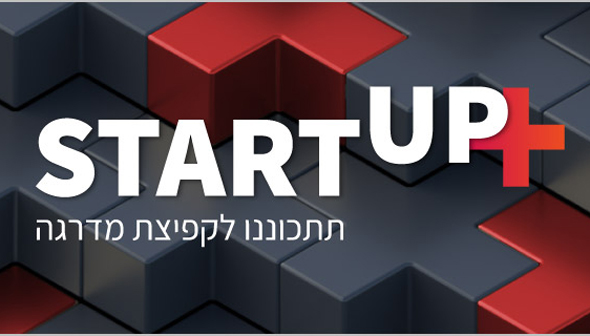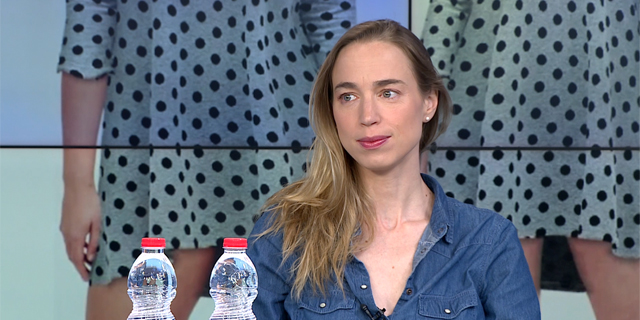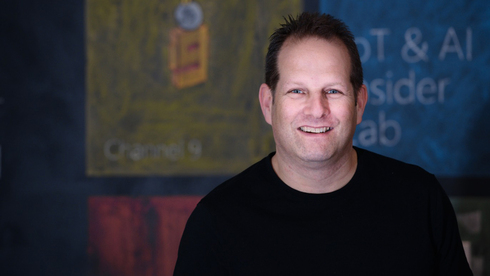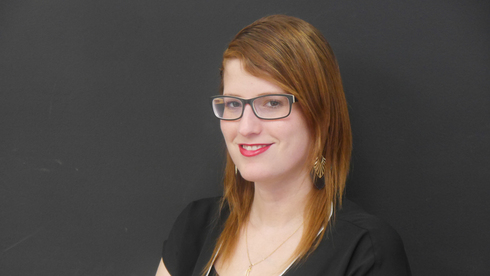

Entrepreneurs golden tips: Keep work-life balance, and choose your first clients wisely
Leading entrepreneurs share their experience ahead of the final stage of Calcalist’s Startup+ competition, sponsored by Poalim Hi-Tech
CTech | 15:14, 06.10.21
“We take people we know and if there is no acquaintance then it is important to make in-depth inquiries to really get to know the people because there is great importance to teamwork," said Asaf Toker, CEO of Matricelf, which won Calcalist’s Startup+ competition last year. He also emphasized the importance of believing in the technology you develop and the market, as well as gathering an amazing team around you.
In addition, Toker recommended practicing your pitch, making sure it is solid and that it flows. "You need to know that you master the material even if there is a sudden glitch in the presentation or something does not work, that you can deliver without the presentation in front of you if needed. You have to practice in front of family, employees, and prepare for this event. Even though I gave this presentation dozens of times, I still prepared and edited it according to the events’ demands, and then I had to practice some more.” On winning, Toker said that "the competition helped us a lot. The publicity that followed helped a lot, also increased the exposure of the company and we also used the tools we received during the competition and the prizes we received."
Yael Vizel, founder and CEO of the fashion-tech start-up Zeekit, thinks entrepreneurs should choose their first customers well. “When creating new technology, the first clients become true partners on your journey, so choose them wisely. On the one hand, the business relationship with them will have to prove that there is real and significant monetary value in the market for the new product you have developed, while on the other hand, these customers will require more development resources, support, adjustments, and changes for part of the product market adjustment process, so the first few attempts might not turn a profit at first. Try and duplicate the process with five to eight customers and you are on the right path to product-market-fit and growth."
Vizel agrees that it is important to choose the founding partners and key employees well, but she also said that it is no less important to choose the lawyer and finance manager who will grow the company with you. "They will be your right-hand in every transaction, board meeting, and strategic process, and will very quickly become an integral part of the founding team."
To entrepreneurs, Vizel said to know how to balance founding the company and their private life. "As a CEO, the company is your life, but it is also important to know how to get off this roller coaster from time to time, to breathe and gather strength. Take time for love, family, and friends, even when the pressure is huge. Keep at least one hobby you had for years, and try to unplug during weekends’ even for a couple of hours. Entrepreneurship is a way of life when it enables life itself."
According to Tzahi Weisfeld, vice president and general manager of Intel Ignite, Intel’s startups program, the most important thing is the team because every investor wants to know that the team is capable of implementing their idea, and adjust as needed. "Being a lone entrepreneur is usually a disadvantage, it is better not to be a sole founder. In addition, it is good that there is a balance between team members. It is very common for two or three guys to be from Unit 8200, which is excellent but unbalanced. It is better to have a content expert, someone who knows the business side and sales, and a person who knows the tech."
Additionally, Weisfeld said that it is important that there is some validation of the idea, and preferably, from real potential customers. "The questions will always be whether you talked to someone American? Were you able to validate the idea with someone in a significant target market? We all run first to our friends, but that's not always enough. There is a very high value of validation from significant and serious customers," he said.
Weisfeld also recommends playing the game, and not being afraid to convey confidence. "You have to really believe in what you do and always feel that you are already a few steps ahead because otherwise someone will just overtake you and get there first. During interaction with investors, it is important to fake it until you make it because investors want to back entrepreneurs who show grit, who you want to see succeed, hence it is important to showcase success. Everyone plays this game,” he added.
Batsheva Moshe, head of Poalim Hi-Tech at Bank Hapoalim, advises entrepreneurs to always remember why they embarked on their journey in the first place and to have faith as they walk their path. "In a startup’s life cycle there are a million ups and downs and sometimes the company does so many pivots due to a variety of external causes. Do not forget the reason you got on this crazy roller coaster in the first place. True, you might have to make adjustments to the company’s essence, to the product, and to the strategy because of a changing reality, but remember to not get lost," she said. “There will always be a lot of ‘good souls’ along the way who will not believe in you, in the venture, in the business potential, or in technology, and will make a point of telling you how hopeless it is. Create a shield made of steel for yourself. Mental strength. It's part of the process. There is no successful entrepreneur who did not go through hundreds of negative responses. Have confidence in yourself, in the venture, in the decisions you make. But also be attentive to constructive and proactive criticism. Not every piece of advice should be given, but not every piece of advice should be disregarded. "
Despite the atmosphere of abundance and madness that exists in high-tech today, Moshe recommends always be prepared for a crisis. "If there is one thing we have learned in the last two years, it is that a crisis will come. The question is not if but when. Crisis preparedness includes mental preparation in mindset, but also at a practical level of the business, meaning in aspects of the staff, finance, investors who will be able to offer support even during market decline, etc. Crisis, by the way, can sometimes be a change in the Facebook and Google algorithms. If your company is built on big-tech foundations or relies on a single platform you are dependent on that company’s aspirations and terms. Quite a few companies have died over this," she added.
In addition, although she suggests setting aggressive growth targets, Moshe said they must be realistic. "If there is another thing we have learned this year, it is that it is better to surprise and over-deliver than not to meet the targets. The failure to meet the goals you have presented to investors can be devastating in terms of investor confidence, stock value, and relationships with your bank. "
Even if you are certain that you are better than the competition, do not underestimate them. Certainly not out loud and certainly not in front of investors. "You never know who is invested in a competing company or what friendly relationships exist. The preferred answer to the common question ‘How are you different from company X?’ is 'They are great, they do a great job. Our product is different/focused on a different direction/adds a different feature/targets different audiences/more advanced in another aspect. Of course, first of all, make sure to know, in depth, how your product differs from the competition," Moshe said.


